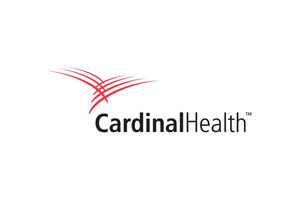How Can Health Plans Make MTM Services a Cornerstone Benefit for Their Members?
DUBLIN, Ohio, Nov. 3, 2014 /PRNewswire/ -- Healthcare leaders are being pushed hard across the board to lower costs while raising quality. Medication Therapy Management (MTM) has been hailed by many, including the federal government, as one way to accomplish this important goal, especially in Medicare Part D. In fact, the Center for Medicare & Medicaid Services (CMS) calls MTM a "cornerstone" of Part D's future and a practice that will "serve as a model for achieving quality."
So, then, why do only 1% of eligible Medicare Part D beneficiaries get MTM services today? And what must health insurance plans do to reap the MTM benefits in CMS' Five-Star Quality Ratings System and other ways?
In a new blog post on Cardinal Health's online thought leadership site, Essential Insights, Brad Tice, RPh, PharmD, FAPhA, shares his perspective on why more patients aren't receiving MTM services, and how health plans can maximize the benefits of MTM services in both the short and long term.
"Today, only a small share of Medicare Part D beneficiaries receive MTM services because health plans identify only 10% of members as eligible and, of these, only 10% get a Comprehensive Medication Review (CMR)," says Tice. "That means only 1% of Part D beneficiaries – 10% of 10%– get this 'cornerstone' benefit of Part D's future. This large disconnect between health plans and CMS cannot last."
According to Tice, here are five steps health plans can take to ensure more eligible beneficiaries receive this important Medicare Part D benefit:
- Improve your reach. Reach members where they receive care. Partnerships with providers who see patients frequently – retail pharmacies and long-term care facilities, for example – are crucial for connecting to the high-risk Part D patients whom CMS wants to receive MTM services.
- Find new allies. When incentives are properly aligned, pharmacists have a proven ability to improve patient care in a cost effective way. Properly structuring payments will dramatically improve outcomes. View the pharmacist as a Star Ratings ally.
- Measure and maximize ROI. A lot of focus has been on the question, "What is the ROI on MTM services?" First ask, "What is the cost of inappropriate medication use?" The answer is about $300 billion annually. Then ask, "What is the ROI on a physician visit? On other forms of care?" If a medication is not used correctly, most of these costs will have gone to waste, not to mention the savings that will be missed from the prevention of disease progression.
- Leverage data to find new models of care. While payers need to manage their populations across often broad geographies, individual care for these populations occurs at a local level. Therefore, collaborating with providers, who have the local reach, is key to innovation. These collaborative initiatives -- electronic data sharing, business models that incorporate pharmacists, MTM consultations on specialty medications, care across distribution channels and so on -- are the waves of the future.
To learn more about Tice's insight why health plans need to explore new ways to ensure MTM services are being delivered to the patients who can most benefit from them, read his full blog post at Essential Insights.
About Cardinal Health
Headquartered in Dublin, Ohio, Cardinal Health, Inc. (NYSE: CAH) is a $91 billion healthcare services company that improves the cost-effectiveness of health care. As the business behind health care, Cardinal Health helps pharmacies, hospitals, ambulatory surgery centers and physician offices focus on patient care while reducing costs, enhancing efficiency and improving quality. Cardinal Health is an essential link in the health care supply chain, providing pharmaceuticals and medical products to more than 100,000 locations each day. The company is also a leading manufacturer of medical and surgical products, including gloves, surgical apparel and fluid management products. In addition, the company supports the growing diagnostic industry by supplying medical products to clinical laboratories and operating the nation's largest network of radiopharmacies that dispense products to aid in the early diagnosis and treatment of disease. Ranked #19 on the Fortune 500, Cardinal Health employs more than 34,000 people worldwide. More information about the company may be found at cardinalhealth.com and @CardinalHealth on Twitter.
SOURCE Cardinal Health
Related Links
WANT YOUR COMPANY'S NEWS FEATURED ON PRNEWSWIRE.COM?
Newsrooms &
Influencers
Digital Media
Outlets
Journalists
Opted In





Share this article